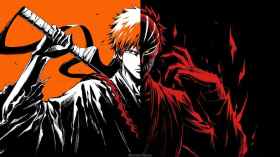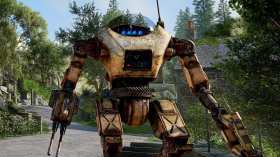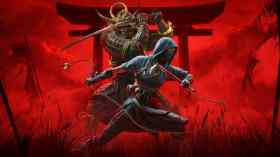Final Fantasy 7 Rebirth had a difficult task ahead of it. To live up to the legacy of the excellent Final Fantasy 7 Remake, prove just as affecting as its predecessor, and yet hold back enough to pave the way for a devastating final chapter. As the second act in a grand trilogy, it toes the line beautifully, arriving as a triumphant, heartbreaking, gorgeous adventure with a slower yet emotionally satisfying story filled with stylistic flourish.
With Remake laying tracks via the introduction of the game’s main cast at breakneck speed, Rebirth slows the action down several notches, introducing more layers of poignancy to every step of the journey. It also takes time to inject a light-hearted sense of silliness into the plot, with elements of comedy layering Rebirth with more tender and personable emotional stakes.
Where Cloud was previously a stoic, closed-off hero, Rebirth takes the time to focus on his past and his anguish, buffing out his rougher edges. He remains brusque and cold, but Rebirth crosses a bridge to more fully form his character and his relationships, highlighting the bonds between Cloud and his nearest companions.
Read: How long is Final Fantasy 7 Rebirth?
It’s these bonds that guide the overarching quest of Rebirth, which is as much about preventing the end of the world as it is the importance of relying on friends. The game’s events kick off immediately in the aftermath of Remake, with Cloud, Aerith, Tifa, Barret, and Red XII hot on the trail of Sephiroth, who plans to save the planet by destroying it.
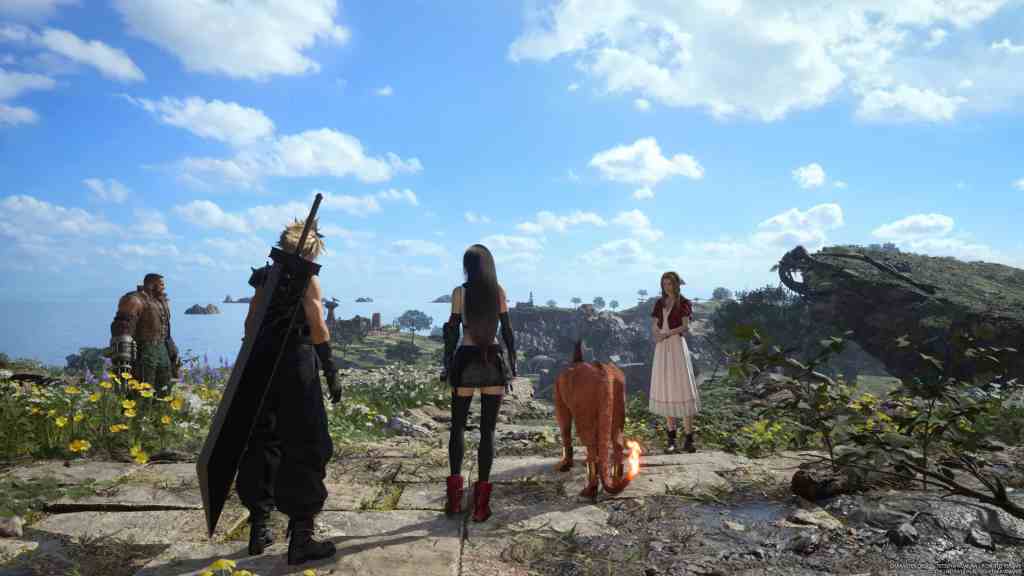
His trail leads through an array of regions – Nibel, Corel, Gongaga, and beyond – with each hiding clues to Sephiroth’s plans. While he remains a vague presence for the majority of gameplay, his influence is never far – either in the mysterious presence of cloaked strangers, or as an influence on Cloud’s slowly deteriorating mind.
It’s his shadow that provides the impetus for Rebirth‘s long journey, as Sephiroth haunts Cloud and his friends throughout their travels. Equally, Cloud is haunted by his past – his relationship with fellow SOLDIER Zack Fair, and the Avalanche crew lost along the way: Jessie, Biggs, and every other freedom fighter fallen to Shinra.
While Rebirth‘s rumination on the past threatens to cloud the adventure with dour notes, deft storytelling means its darkness is balanced with a much lighter touch. It dives deep into despair, and comes out the other side, buoyed by a more powerful sense of optimism – and a silly sense of glee.
There are moments in Final Fantasy 7 Rebirth where Cloud and Tifa are turned into frogs. There’s a moment where Cloud rides a dolphin – and another where gothic companion Vincent Valentine calls a haunted house ‘cosy’. The game may be dark in parts, but there is always room for strangeness and memorable tongue-in-cheek bits.

The Gold Saucer, around which the game’s plot largely revolves, is a location that underlines Rebirth‘s approach. In each of its Disneyland-like arenas, you’ll find a horde of odd little mini-games to indulge in (including fights where you a control low-poly version of Cloud), but you’ll also have a chance to steal away in this location, and get to know each of your companions better.
You’ll become closer to Aerith and Tifa, and newer friends like Cait Sith, Vincent Valentine, and Cid. You’ll even sit down for an opera at the Gold Saucer – and while it initially seems like a strange inclusion, it quickly becomes a quiet, wonderful moment for Cloud to reflect on his bonds, comrades lost, and the fight against Sephiroth. It takes a clever hand to pull meaning and strong emotion from such interludes, but Square Enix has managed wonderfully in Rebirth.
By nature of this chapter sitting directly in the middle of the modern FF7 trilogy, there is a slightly sense of sag in the overall journey of the game – you’ll spend a significant amount of time completing mini-games, or taking on sometimes arduous puzzles – but the longer length lends more time for introspection, and its slower pace feels by design. It gives the entire cast time to grow, and to become more human.
In taking the long road, Rebirth earns its whopping endgame spiral, which brings together years of storytelling and character development in a twisting, constantly surprising final act – which naturally leaves the door open for one final chapter.
It would be easy to assume the direction Rebirth heads, given it follows the middle act of Final Fantasy 7 near-exactly, but with branching pathways and fresh ideas that emerge from the rubble, the game has plenty of magic up its sleeves.
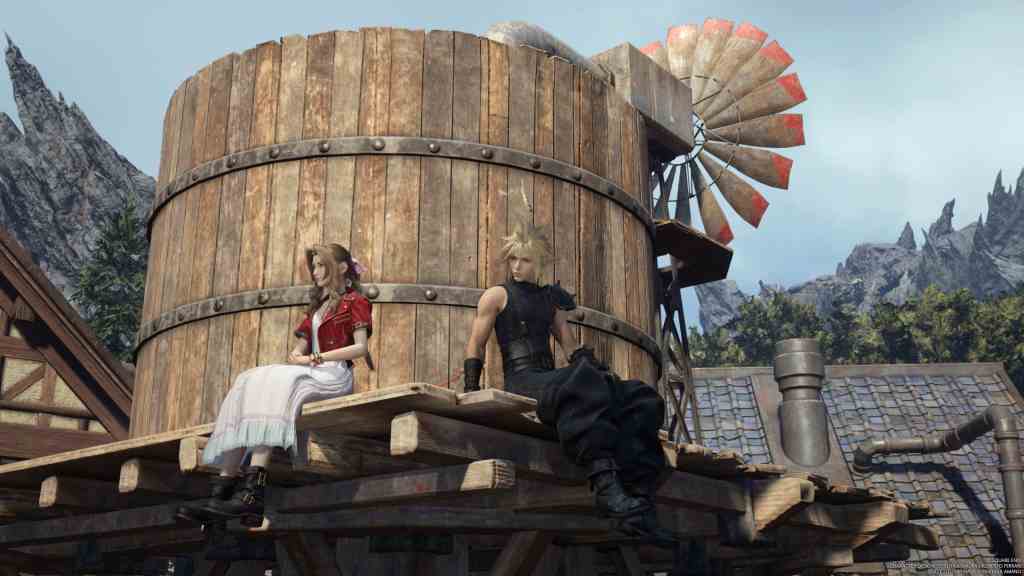
In the end, it’s the game’s main cast of heroes that makes this chapter feel so special. Rebirth manages well with its ever-growing cast of characters, giving each a sparkling spotlight. You care about each and every one of them – and when they’re put through their trials, it’s a heartache to guide them through.
That’s what a good game does. It makes you feel. It makes you think. With grand set pieces and rich narrative turning points, Final Fantasy 7 Rebirth consistently gives you reasons to care, to sit at the edge of your seat, wide-eyed, wondering what the future holds. Even with the groundwork laid by the original game, there is a sense that anything can happen, that the future remains unwritten.
There is a pervasive sense of hope with every step.
It’s that hope that illuminates the wild journey of Rebirth – through its oddness, and its devastation. It’s an altogether different beast than Remake, but with a perfectly-balanced levity to its tale of light versus darkness, it manages to navigate Cloud and his crew through rocky, unknown roads well.
The end of the journey arrives far too soon, even after dozens of hours, but at least Rebirth promises a bright future in its next chapter – one that will be well worth waiting for.
Five stars: ★★★★★
Final Fantasy 7 Rebirth
Platforms: PlayStation 5
Developer: Square Enix
Publisher: Square Enix
Release Date: 29 February 2024
An early copy of Final Fantasy 7 Rebirth for PS5 was provided by Square Enix for the purposes of this review. GamesHub reviews are rated on a five-point scale.


